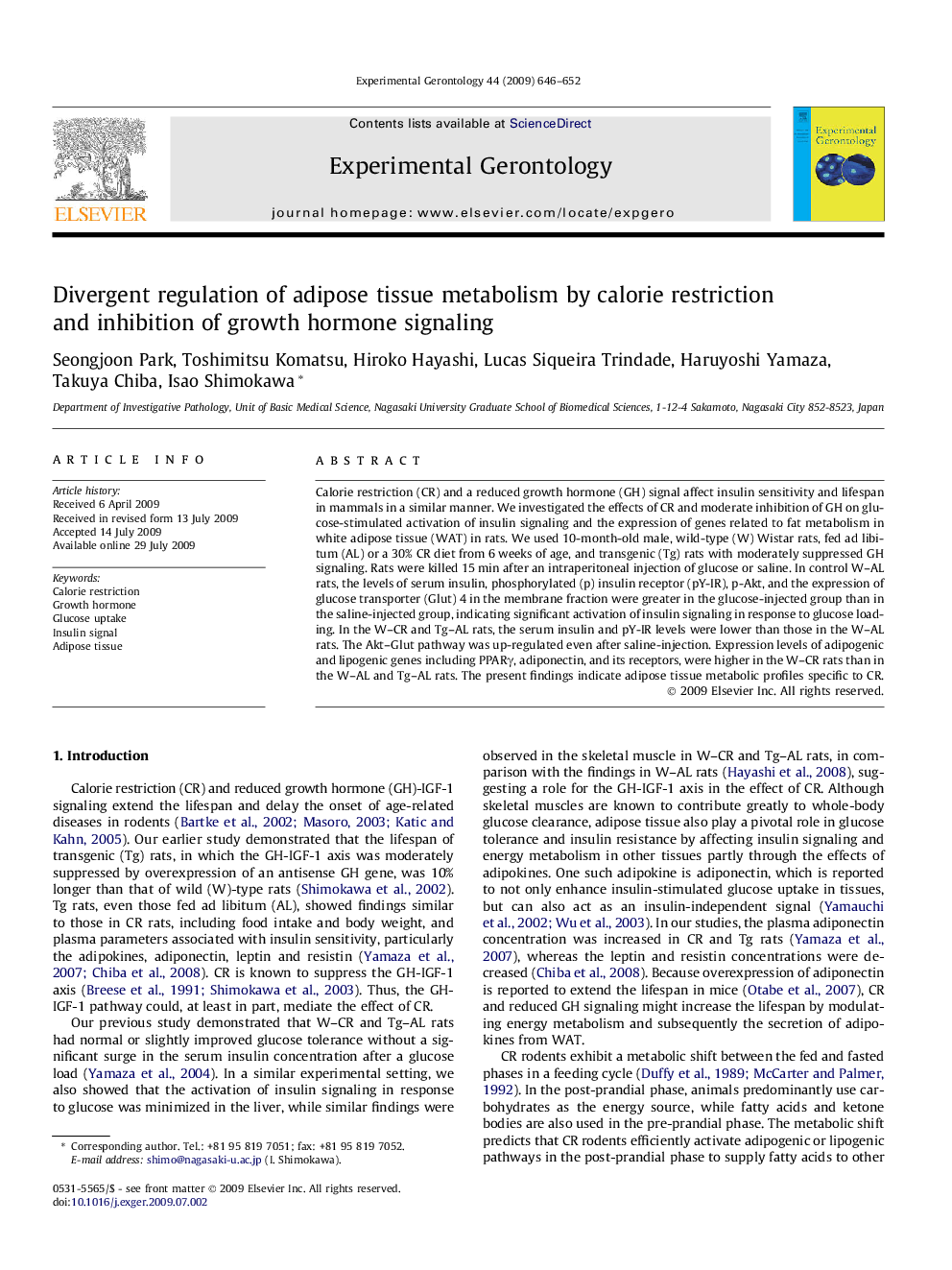| Article ID | Journal | Published Year | Pages | File Type |
|---|---|---|---|---|
| 1906843 | Experimental Gerontology | 2009 | 7 Pages |
Calorie restriction (CR) and a reduced growth hormone (GH) signal affect insulin sensitivity and lifespan in mammals in a similar manner. We investigated the effects of CR and moderate inhibition of GH on glucose-stimulated activation of insulin signaling and the expression of genes related to fat metabolism in white adipose tissue (WAT) in rats. We used 10-month-old male, wild-type (W) Wistar rats, fed ad libitum (AL) or a 30% CR diet from 6 weeks of age, and transgenic (Tg) rats with moderately suppressed GH signaling. Rats were killed 15 min after an intraperitoneal injection of glucose or saline. In control W–AL rats, the levels of serum insulin, phosphorylated (p) insulin receptor (pY-IR), p-Akt, and the expression of glucose transporter (Glut) 4 in the membrane fraction were greater in the glucose-injected group than in the saline-injected group, indicating significant activation of insulin signaling in response to glucose loading. In the W–CR and Tg–AL rats, the serum insulin and pY-IR levels were lower than those in the W–AL rats. The Akt–Glut pathway was up-regulated even after saline-injection. Expression levels of adipogenic and lipogenic genes including PPARγ, adiponectin, and its receptors, were higher in the W–CR rats than in the W–AL and Tg–AL rats. The present findings indicate adipose tissue metabolic profiles specific to CR.
